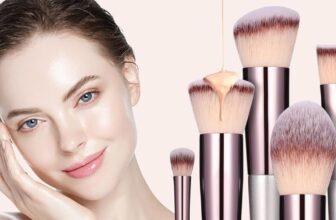Skincare is essential for healthy skin. It helps protect and nourish your skin every day.
Many people wonder, “Is skincare really necessary? ” The answer is yes. Skincare keeps your skin looking good and feeling fresh. It can prevent problems like dryness, acne, and aging. With the right products and routine, anyone can improve their skin’s health.
Understanding the basics of skincare is important for everyone, regardless of age or skin type. This blog will explore why skincare matters, its benefits, and how to create a simple routine. By the end, you will see that skincare is more than just a trend. It is a vital part of self-care and overall health. Let’s dive into the world of skincare!

Credit: www.palatinate.org.uk
The Skin: A Vital Organ
The skin is more than just a covering. It plays many important roles. Understanding its functions helps us appreciate skincare. It is essential for health and well-being.
Our skin protects us. It acts as a barrier against germs. It also helps regulate body temperature. This organ works hard to keep us safe every day.
Functions Beyond Appearance
Many people think of skin only for its looks. Healthy skin glows and looks youthful. Yet, skin does much more.
It helps in sensation. Nerves in the skin detect touch, heat, and pain. This allows us to react quickly to dangers.
Skin also plays a role in vitamin production. It helps our body make vitamin D from sunlight. This vitamin is crucial for bone health.
Skin supports our immune system. It prevents harmful substances from entering our body. This protective function is vital for overall health.
Indicators Of Overall Health
The skin can show signs of health issues. Changes in skin color or texture can signal problems. For example, a rash might indicate an allergy.
Dry or flaky skin can suggest dehydration. Oily skin might signal hormonal changes. These clues help us understand our body’s needs.
Skin health reflects our lifestyle. Poor diet and stress often show on the skin. Caring for our skin can improve overall well-being.
Paying attention to skin changes is important. Regular check-ups can catch problems early. Healthy skin is often a sign of a healthy body.
Debunking Skincare Myths
Skincare myths are everywhere. They can confuse and mislead us. Understanding the truth is important. Let’s clear up some common misconceptions.
Natural Vs. Chemical Misconceptions
Many believe natural products are always better. This isn’t true. Some natural ingredients can irritate the skin. They may cause allergic reactions. Chemical products can also be safe and effective. They often have science behind them. Always check the ingredients, not just the label.
Some chemicals are beneficial. They can help with acne, aging, and more. The key is understanding what works for your skin. Choose products based on your skin type and needs.
Age And Gender Stereotypes
Skincare is for everyone. Many think only women need skincare. This is false. Men also benefit from a good routine. Age is another stereotype. Young people face skin issues too. They also need proper care.
As we age, skin changes. Everyone should adapt their skincare. It is not just a female concern. Both genders and all ages should take care of their skin.
The Science Of Skincare
Understanding skincare goes beyond just creams and serums. It involves knowing how your skin works. Our skin is a complex organ. It protects us and helps us feel. Let’s explore the science behind skincare.
Understanding The Epidermis
The epidermis is the outer layer of skin. It acts as a barrier against the environment. This layer is thin but very important. It keeps moisture in and harmful things out.
The epidermis has several layers. Each layer has specific cells and functions. The top layer, called the stratum corneum, is made of dead skin cells. These cells shed regularly. New cells replace them from below.
Healthy skin looks smooth and radiant. Proper skincare helps maintain this health. Hydration is key. Moisturizers can help keep the epidermis soft.
The Role Of Collagen And Elastin
Collagen and elastin are proteins in the skin. They provide structure and support. Collagen gives the skin strength. Elastin allows it to stretch and bounce back.
As we age, collagen and elastin decrease. This leads to sagging and wrinkles. Skincare products can support collagen production. Ingredients like vitamin C and peptides are beneficial.
Keeping skin firm and elastic is crucial. A good routine can help slow down aging. Protecting skin from sun damage also plays a role.
Daily Skincare: More Than Vanity
Daily skincare is not just about looking good. It is about taking care of your skin. Healthy skin protects your body. A simple routine can make a big difference. Understanding this can help you see skincare in a new light.
Protection Against Environmental Damage
Your skin faces many threats every day. Sun, pollution, and harsh weather can harm it. A good skincare routine acts as a shield. Here are some common environmental damages:
- UV Radiation: Can cause sunburn and skin cancer.
- Pollution: Leads to premature aging and dark spots.
- Harsh Weather: Can dry out or irritate your skin.
Using sunscreen is essential. It protects against UV rays. Moisturizers help keep skin hydrated. They also guard against pollution. With the right products, you can defend your skin daily.
Prevention Of Long-term Skin Issues
Daily skincare helps prevent serious problems. Neglect can lead to wrinkles, acne, or dark spots. A consistent routine can save you from these issues later. Here are some benefits of prevention:
- Reduces Fine Lines: Regular moisturization keeps skin smooth.
- Minimizes Acne: Cleansing helps remove dirt and oil.
- Improves Skin Tone: Exfoliation brightens and evens out skin.
Simple daily habits make a big impact. Wash your face twice a day. Use products suitable for your skin type. Protecting your skin now means a healthier future.
Psychological Impact Of Skincare
Skincare goes beyond just appearance. It affects how we feel about ourselves. A good skincare routine can boost mood and self-image. Many people see their skin as a reflection of their health. When skin looks good, it often makes us feel good inside.
Taking time for skincare can create a sense of control. This control helps reduce stress. It can be a positive way to cope with daily challenges. Skincare can become a source of joy and a moment of peace.
Self-esteem And Confidence
Healthy skin can enhance self-esteem. Many people feel more confident with clear skin. This confidence can influence social interactions. Feeling good in your skin can lead to a better outlook on life.
Skincare routines can help build a positive self-image. The act of caring for oneself fosters self-love. A simple skincare practice can make a big difference. It can change how we see ourselves and how others see us.
The Ritual Of Self-care
Skincare is more than just products. It is a daily ritual that promotes self-care. This ritual can be soothing and meditative. Taking time each day to focus on skin can calm the mind.
Creating a skincare routine allows for personal time. It becomes a moment to unwind. This small act can improve mental well-being. Simple rituals can uplift spirits and encourage mindfulness.
Choosing The Right Skincare Products
Choosing the right skincare products is essential for healthy skin. The market is filled with options. Each product claims to offer benefits. Finding what suits you can be tricky. Understanding labels and knowing your skin type helps.
Reading Labels And Ingredients
Start with the product label. It shows what is inside. Look for key ingredients that benefit your skin. Common ingredients include hyaluronic acid, retinol, and vitamin C. These help with hydration, aging, and brightness.
Avoid products with harsh chemicals. Ingredients like parabens and sulfates can irritate the skin. Always check for allergens, especially if you have sensitive skin. The order of ingredients matters too. The first few ingredients are the most concentrated.
Tailoring To Your Skin Type
Know your skin type before buying products. Is your skin oily, dry, or combination? Each type requires different care. For oily skin, choose lightweight gels. They help control shine.
For dry skin, creamy moisturizers are best. They provide extra hydration. Combination skin needs a balance of both. Test products to see what works. Pay attention to how your skin reacts.
Regularly assess your skin’s needs. Changes in weather or diet can affect it. Adjust your skincare routine as needed. This ensures your skin stays healthy and glowing.
Skincare Through The Ages
Skincare is an ancient practice. People have cared for their skin for thousands of years. Different cultures have unique methods and ingredients. Over time, skincare has changed with new knowledge and needs.
Adapting To Life Stages
As we grow, our skin changes. Skincare routines must adapt to different life stages:
- Children: Gentle products are essential. Focus on hydration.
- Teenagers: Acne treatments become important. Oil control is key.
- Adults: Anti-aging products are popular. Hydration and protection are vital.
- Seniors: Moisturizers and gentle cleansers are needed. Skin becomes thinner and drier.
Historical Practices To Modern Day
Skincare has roots in history. Ancient Egyptians used oils and creams. They believed in beauty rituals.
Here are some historical practices:
| Culture | Skincare Practice |
|---|---|
| Egyptians | Used olive oil and honey for moisture. |
| Greeks | Applied olive oil and herbs for glow. |
| Romans | Used baths with natural ingredients for skin health. |
| Chinese | Emphasized herbal remedies and acupuncture for beauty. |
Modern skincare combines ancient wisdom and science. New ingredients and techniques emerge every year. People now focus on natural products.
Today’s skincare includes:
- Serums with vitamins.
- SPF for sun protection.
- Retinoids for anti-aging.
- Hydrating masks for moisture.
Understanding skin health is vital. Skincare has come a long way. Embrace the journey of caring for your skin.

Credit: sublimelife.in
Lifestyle And Skincare Synergy
Lifestyle and skincare work together. What you do in daily life affects your skin. Healthy habits lead to glowing skin. Poor habits can cause skin problems. Let’s explore how diet, hydration, sleep, and stress management impact skincare.
Diet And Hydration
Your diet plays a big role in skin health. Eating fruits and vegetables gives your skin vitamins. Foods rich in antioxidants help fight damage. Omega-3 fatty acids from fish can reduce inflammation.
Hydration is equally important. Drinking enough water keeps skin moist. Dry skin can look dull and aged. Aim for at least eight glasses of water daily. Herbal teas and fresh juices also count.
Sleep And Stress Management
Sleep is vital for skin repair. Lack of sleep can lead to dark circles. Aim for seven to nine hours each night. Good sleep makes your skin look fresh.
Managing stress helps too. High stress can lead to breakouts. Practice relaxation techniques like meditation or deep breathing. Simple activities can make a big difference.
Skincare Innovations
Skincare has seen many exciting changes. New products and technologies emerge each year. These innovations aim to improve skin health. They also make routines easier and more effective.
Technological Advancements
Technology plays a big role in skincare today. Devices and apps help people track skin health. Here are some key advancements:
- Smart Mirrors: These mirrors analyze skin in real-time.
- At-Home Devices: Tools like LED masks treat skin issues.
- AI Skin Analysis: Apps use AI to suggest products.
These advancements make it easier to care for skin. They provide personalized feedback and treatments. Users can see results faster.
The Future Of Personalized Skincare
Personalized skincare is on the rise. People want products that match their unique needs. The future includes:
- Customized formulations based on skin type.
- Products tailored to specific concerns like acne or aging.
- DNA analysis for deeper insights into skin health.
Brands are using data to create better products. This trend will continue to grow. Skincare will become more effective and enjoyable for everyone.
| Innovation | Description |
|---|---|
| Smart Mirrors | Analyze skin and provide feedback. |
| At-Home Devices | Treat various skin issues effectively. |
| AI Skin Analysis | Suggest products based on individual needs. |

Credit: sublimelife.in
Embracing A Skincare Routine
Starting a skincare routine is important for healthy skin. It helps protect your skin from damage. A good routine can improve your skin’s look and feel. Everyone can benefit from a simple skincare plan.
Creating a routine takes time and patience. You can adjust it as you learn what works best for you. Let’s dive into the steps for a solid skincare routine.
Step-by-step Guide
Begin with cleansing your face. Use a gentle cleanser to remove dirt and oil. Rinse with lukewarm water to avoid irritation. Next, apply a toner. This helps balance your skin’s pH level.
After toner, use a serum. Serums target specific skin issues like dryness or wrinkles. Follow with a moisturizer. This keeps your skin hydrated and soft.
Finally, apply sunscreen during the day. This protects your skin from harmful UV rays. At night, consider using a night cream for extra moisture.
Consistency Is Key
Stick to your routine daily. Consistency brings the best results. Skin takes time to show changes. Be patient and keep going.
Adjust your routine based on your skin’s needs. Listen to what your skin tells you. If it feels dry, add more moisturizer. If it feels oily, try a lighter product.
Remember, everyone’s skin is different. What works for one person may not work for another. Find what suits you and stay committed.
Frequently Asked Questions
Is Skincare Really Necessary?
Skincare is essential for maintaining healthy skin. It helps prevent issues like acne, dryness, and aging. A proper routine protects your skin from environmental damage and promotes a radiant complexion. Investing time in skincare can enhance your overall well-being and boost your confidence.
What Are The Basic Skincare Steps?
The basic skincare steps include cleansing, toning, and moisturizing. Start with a gentle cleanser to remove dirt and impurities. Follow with a toner to balance your skin’s pH. Finally, apply a moisturizer to hydrate and protect your skin. This simple routine can make a significant difference.
How Often Should I Exfoliate My Skin?
Exfoliating once or twice a week is generally recommended. This helps remove dead skin cells and promotes cell turnover. Over-exfoliating can lead to irritation, so listen to your skin. Adjust your routine based on your skin type and needs for optimal results.
Can Skincare Prevent Aging?
Skincare can significantly help in preventing signs of aging. Using products rich in antioxidants and SPF can protect against sun damage. Regular moisturizing keeps skin hydrated, reducing the appearance of fine lines. A consistent routine can promote youthful, radiant skin over time.
Conclusion
Skincare is important for everyone. It helps keep your skin healthy. Simple routines can make a big difference. Choose products that suit your skin type. Take time to learn what works best for you. Remember, consistency is key. Good skincare can boost your confidence too.
Enjoy the journey of caring for your skin. It can be both fun and rewarding. Prioritize your skincare and feel your best every day.







